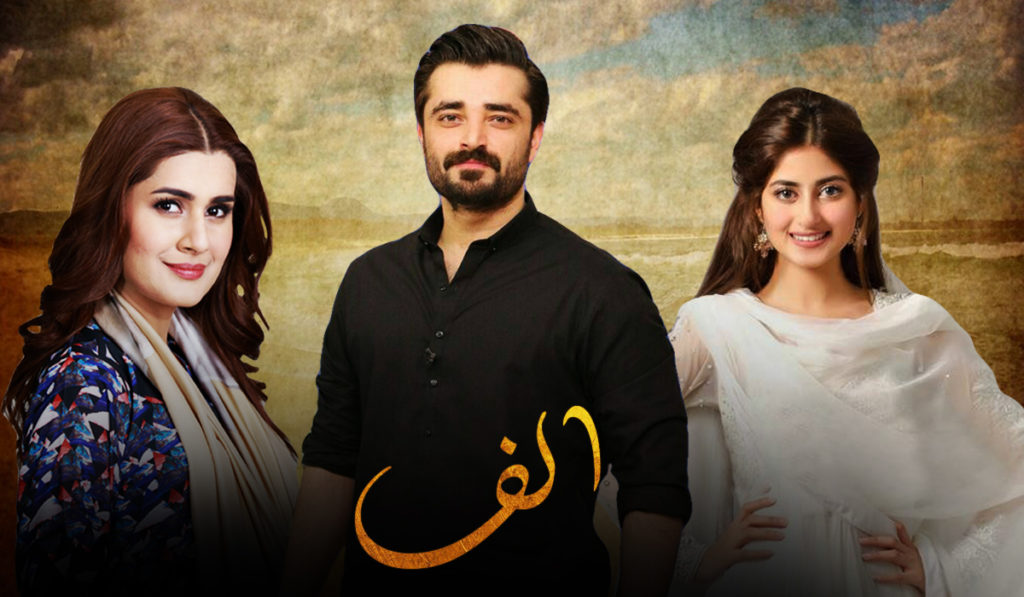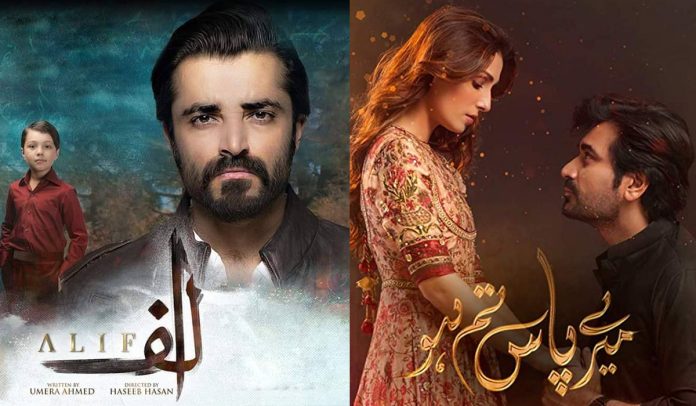Drama serial Alif was one of the most anticipated dramas of last year. There was much to be excited about this drama with regards to its cast and the team behind it. When we consider the fact that the drama’s novel already had a very successful run, Alif had already gained fans before the show even went on-air. However, when the show did go on-air the reception it received was slightly underwhelming.
The Hamza Ali Abbasi starrer got a premiere date which set it up to be a direct competitor of Mere Paas Tum Ho. The kind of mammoth success that MPTH turned out to be is something that won’t be forgotten easily. And that success ended up dampening Alif‘s chances of being in the spotlight. Alif being a more nuanced show with deeply spiritual themes as well as top-notch acting and direction was in a different category altogether compared to the mass-oriented MPTH. Despite its top-notch cast, production values and storyline, it simply couldn’t get the kind of hype it deserved.
Nevertheless, now that MPTH is over the spotlight is back on Alif with the show finally getting the attention and hype it deserves. This is all the more relevant since it is now reaching the most exciting point in its storyline, hence now is the perfect time for the audience to be invested wholly in this gem of a show.
 Alif setting an example
Alif setting an example
One of the strongest and most inspiring thing about Alif is the way it has treated its female protagonists. In the time when most of the dramas written tend to pander to stereotypes about women — either as crying damsels in distress or scheming villains, Alif has given its female protagonist Momina, played superbly by Sajal Aly, the kind of characterization and journey which is both inspiring and a need of time.
The female protagonist is depicted sensitively; something we cannot say for many of our dramas. An aspiring actress with no will to be in the profession, Momina Sultan only works hard day and night to earn money to tend for her brother’s medical treatment. Despite having a man in her life who offers to help pay for the hospital bills, Momina is shown to be level headed and firm in her decision to not take help from anyone, even if that is the love of her life. A woman of principle, who chooses to fight her own battles without falling into the bechari aurat trope is definitely a plus for Pakistani dramas.
When her brother succumbs to his illness, Momina does finally get engaged to her beau Faisal. However, when she tells him that she is offered a project in Hollywood, he leaves no stone unturned to humiliate her profession. Gladly, Momina takes matters in her own hands and breaks up the engagement with Faisal. A woman takes a stand for herself and works hard to prove her self worth rather than charting the convenient path by seeking a wealthy partner – a complete opposite of Ayeza Khan’s Mehwish in MPTH.
Fast forward to the present day, when Momina is successful, Faisal, the man once in her life, is shown to be an opportunist and social climber, trying to get into Momina’s good books, while Momin, on the other hand, tries to accuse Momina of an affair with his assistant Daud. It is refreshing to see Momina not give in to the jealousy and envy of both men and instead, knowing how to put them in their place as is needed.
The play offers hope to women that they need not be merely sidekicks to men in their lives, as it is quite possible for them to achieve their desires and goals by the dint of their hard work and talent. The path to riches need not necessarily go through marriage to a rich suitor.
Final word
The writer of Alif, Umera Ahmad deserves all the kudos for the dignity with which she has crafted her on-screen characters. Whereas flawed writing can quite easily be spotted and criticized, here the nuanced and sensitive work of Umera Ahmad deserves to be given the credit, for it shows that a populist narrative that attacks women as “do takay ki aurat” is not the only way to gain television ratings. A well-crafted, balanced script can do the job just as well.




